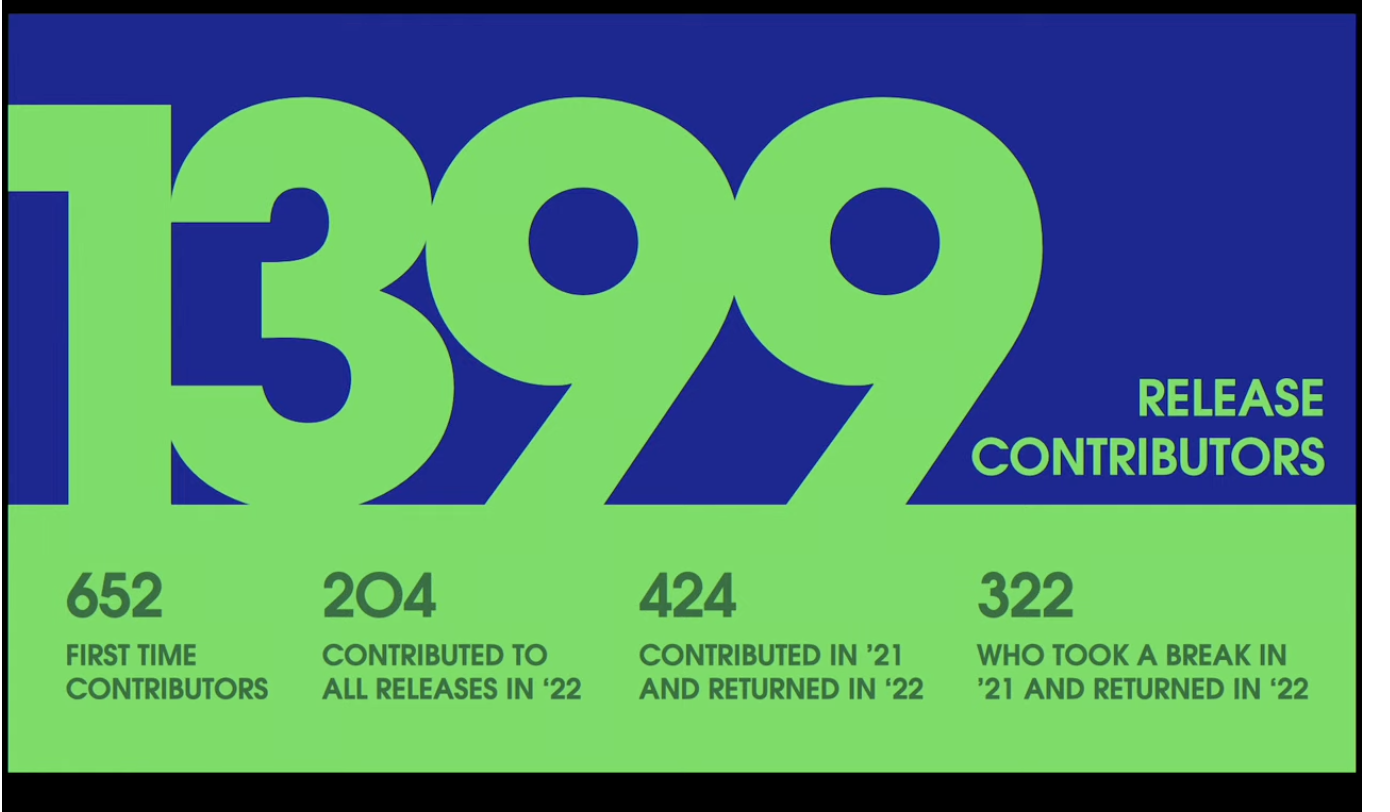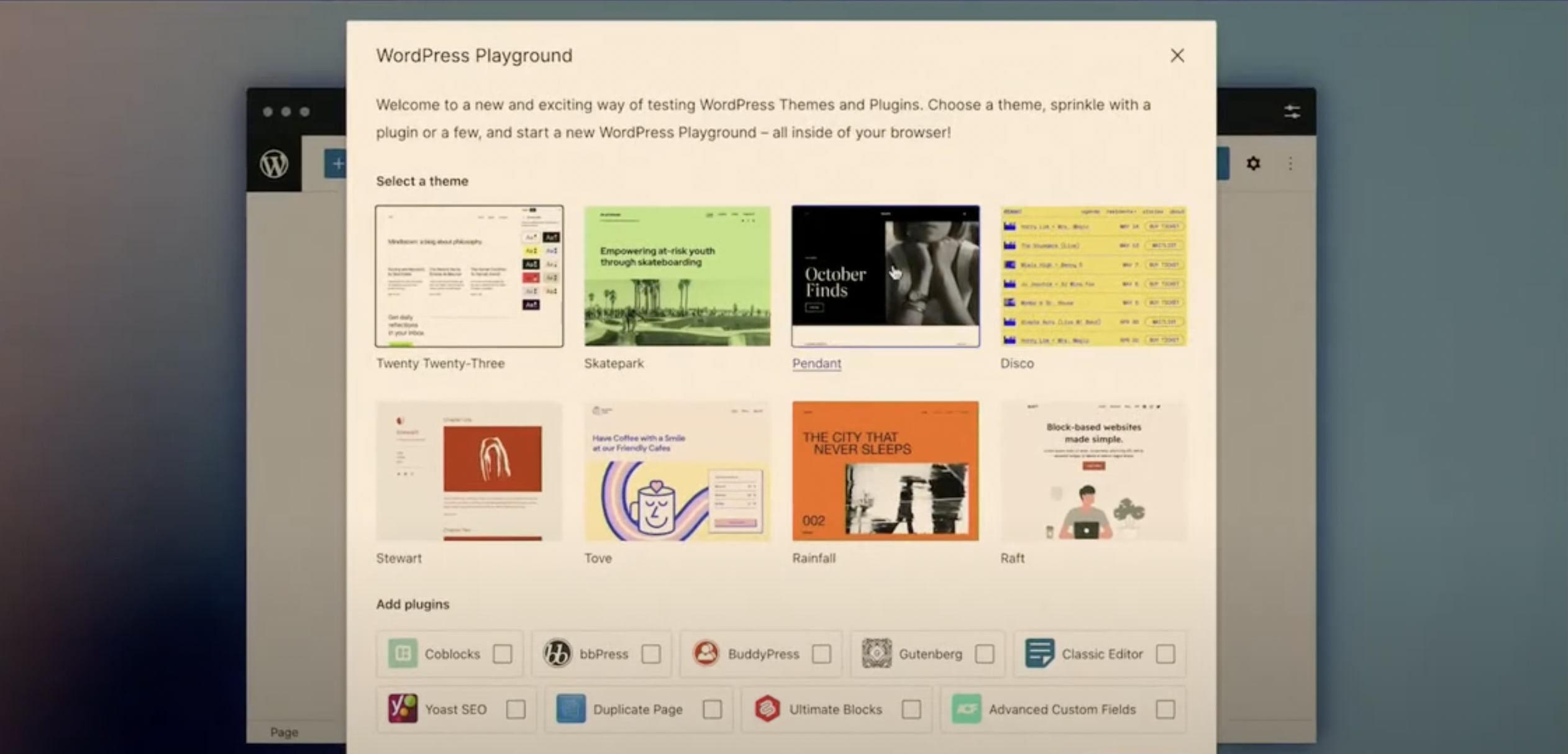State of the Word (SOTW) watch parties kicked off around the world this afternoon as Matt Mullenweg delivered his annual address to the WordPress community. A small group of people gathered live in New York City to participate while the majority of enthusiasts watched via the livestream. Mullenweg spent an hour reviewing and celebrating the work done across the project in 2022 before taking questions from the audience.
At last year’s SOTW, Mullenweg spoke about how Gutenberg adoption is growing beyond WordPress and how he believed it could become “bigger than WordPress itself.” In addition to Gutenberg getting rolled out on the bbPress support forums this week to modernize the WordPress support experience, the block editor has found its way into more apps in 2022.
Mullenweg cited a few examples including Engine Awesome (a Laravel-based SaaS application), the Pew Research Center’s Political Typology Quiz, the web version of Automattic’s Day One app, and the Tumblr post form. He noted that in Tumblr, 99% of the editor is hidden – there’s no sidebar, everything happens inline. Mullenweg said he is hoping Gutenberg can create an “open block standard that can be used anywhere,” where users learn it on one system and it can be applied in other apps.
For those who had been missing WordCamps, one of the major highlights of 2022 was the return to in-person events. From 2021 to 2022, the number of meetup groups doubled. Only one WordCamp was held in 2021 but that jumped to 22 WordCamps in 2022. Mullenweg highlighted how WordCamps have historically been “the magical ingredient” for onboarding people to contribute and teaching them about WordPress culture.
For being just one year back into in-person events, WordPress has done well in 2022 with 1,399 release contributors and 652 contributing for the first time. There were 204 people who contributed to all releases in 2022 and 424 who contributed in 2021 and returned in 2022. Some 322 contributors took a break in 2021 and returned in 2022.

People are also contributing to Openverse, which has indexed more than 22 million images, 1.1 million audio files, and has handled more than 59 million requests in the last 30 days.
Tools Coming to the Community: New Taxonomies for the Plugin and Theme Directories and Staging “Playground” that Runs WordPress in the Browser
It wouldn’t be the State of the Word without a few exciting announcements. Mullenweg unveiled a plan to add new taxonomies for the theme and plugin directories that will help users more quickly ascertain the purpose of the extensions they are considering.
For example, there would be a tag for the type of plugins that a developer might create to solve a problem but may not be intended for wide public use and may not come with dedicated support. Another tag would be designated for “Community” plugins, which Mullenweg said is for software that “belongs to all of us” with the lead developers stewarding it for the next generation. This tag is for plugins that do not have any upsells and invite contributions. Some of these plugins will be canonical plugins, those that are officially supported by core developers and receive attention from the security team. Gutenberg and the importer plugins are a few examples.
Another tag would be designated for commercial plugins that have some sort of upsell and often include commercial support. Anything with a pro version will fall within this category. Mullenweg said he wants WordPress.org to create an environment where commercial and non-commercial plugins can exist together harmoniously.
The new taxonomies will be launching in the directories this month and will also eventually make their way into the plugin and theme screens inside the WordPress admin. This will be a major improvement that will give users of all experience levels a better understanding of the extensions they are examining, making it easier to select the right type for their needs.
Mullenweg also announced WordPress’ official support for the WordPress Sandbox project, which we featured earlier this month. He outlined a plan for what will officially be called “WordPress Playground.” The experimental project uses WebAssembly (WASM) to run WordPress in the browser without a PHP server, making it possible to spin up new playgrounds in just a couple of seconds. This will enable things like a guided, interactive WordPress landing experience where developers can edit code live and see the results right away. It will also make it possible for users to try plugins directly from the directory and may someday be used to allow people to contribute to WordPress core.
A new website for WordPress Playground is located at https://developer.wordpress.org/playground/ where anyone interested can check out the experimental project for running a WordPress instance entirely in your browser. There’s also a new #meta-playground Slack channel for those who want to join the conversation.

WordPress turns 20 next year. Mullenweg noted that not many software projects make it that long but WordPress is also growing faster than ever, currently powering 43% of websites according to W3Techs and 32% according to Builtwith. A new website at wp20.wordpress.net will be headquarters for the festivities, including swag, merchandise, and a new Milestones book for the most recent 10 years of WordPress’ history.
If you didn’t have the chance to catch the State of the Word this afternoon, check out the recording below to hear Mullenweg’s vision for the next phases of WordPress and see demos of all the progress made on block themes and full-site editing in 2022.

